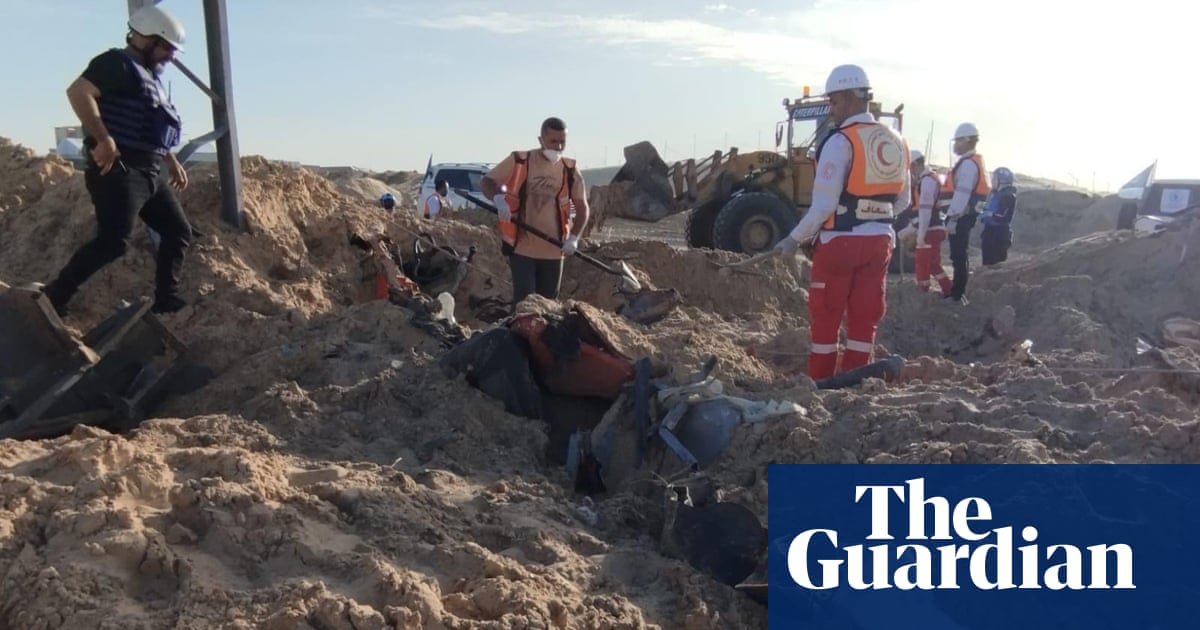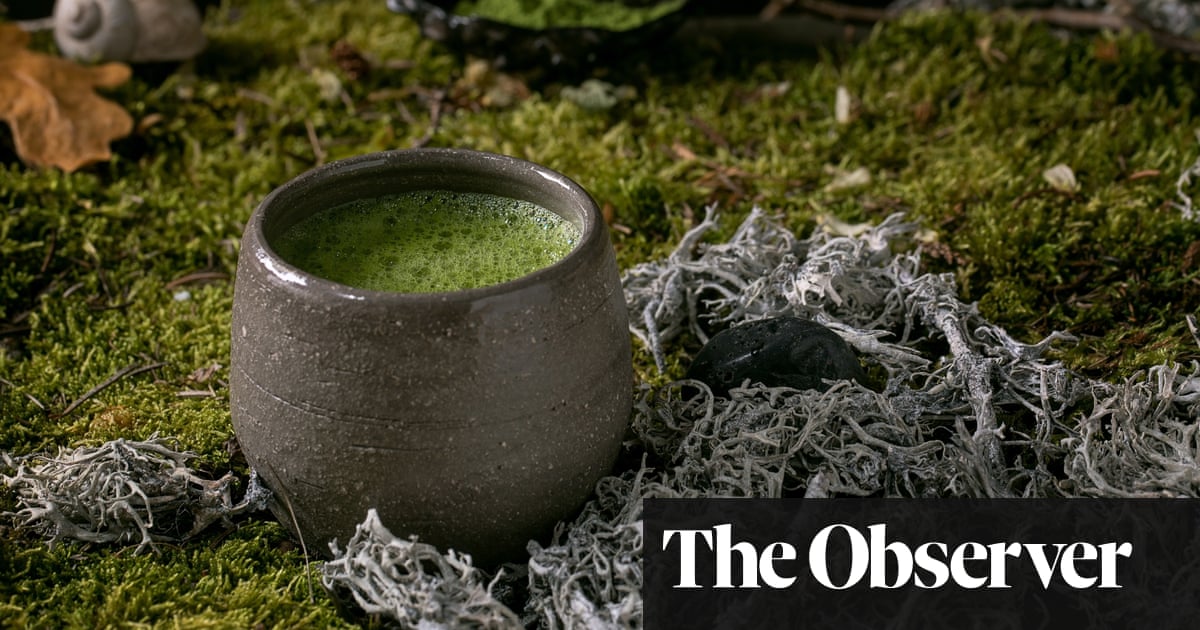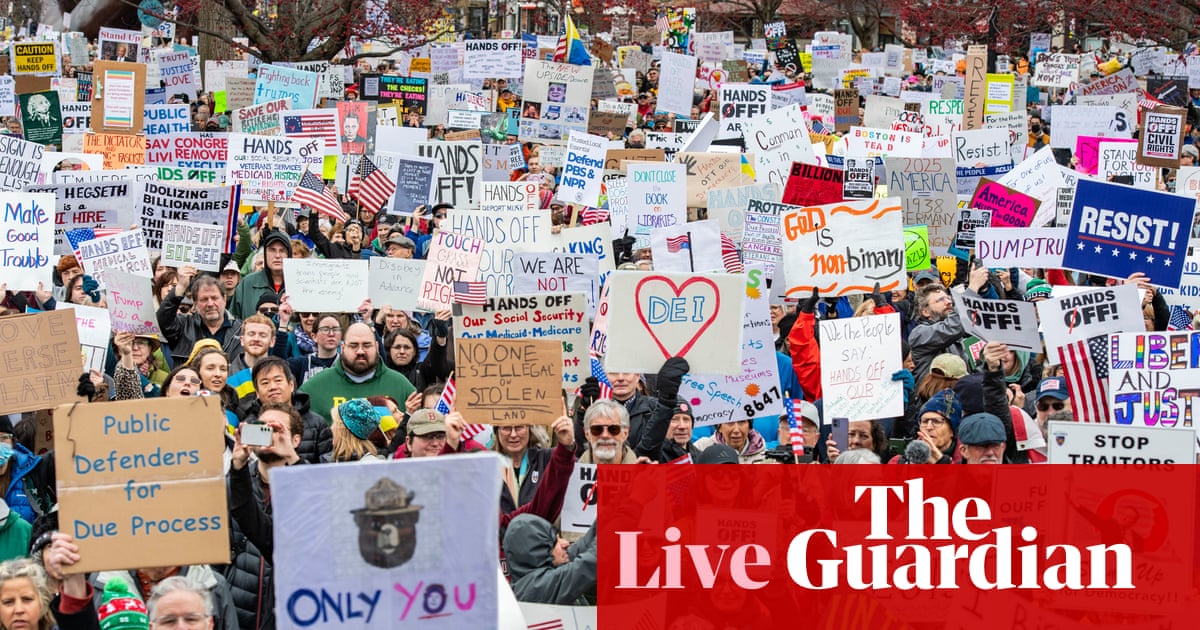Gaza is one of the most dangerous places in the world to be a civilian now that Israeli forces have resumed their military campaign with even more ferocity, but for the first responders who rush towards the wreckage of bombed buildings, the risks are multiplied many times over.
The 15 paramedics and rescue workers whose bodies were found last weekend in a bulldozed pit outside Rafah knew they were putting their lives in peril to try to save others, but they could not have been prepared for what awaited them in the early hours of 23 March.
Saleh Moamer, a 45-year-old Red Crescent ambulance officer and paramedic, had already come close to death twice, his brother, Bilal, recalled. Earlier in the war Saleh was assigned to transport patients between hospitals when his vehicle came under Israeli army fire. The driver was killed instantly and a bullet lodged in Saleh’s chest near his heart. Administering first aid on himself he slid below his seat and steered the vehicle out of the line of fire by following directions given over the radio by his colleagues.
Saleh spent three months in hospital then returned to work. Not long after, on a rescue mission near Rafah, his ambulance was shot at again and he was wounded in the right shoulder. He and Bilal talked about how he had used up all his luck and the third time would be fatal. It was half-joke, half deadly serious, and turned out to be prophetic.
“He said that whatever was intended for him, would happen,” Bilal said.
Before he went out on his night shift on 22 March, Saleh bought bulk quantities of household goods for his wife, their six children, and his brother’s two children who they had been looking after since their father was killed in the conflict.
“He said it would benefit them in the future. It was as if he had a feeling he would not return,” Bilal said.
Saleh joined the Red Crescent during the 2008-09 Israeli invasion of Gaza. He had studied business administration at Al-Azhar University, but his urge to do something immediate to help people amid the turmoil and bloodshed led him to train as a paramedic.
“What kept him going, despite the dangers, was his drive to save innocent lives,” Bilal said, describing his older brother as cheerful and friendly but profoundly dedicated.
“He was deeply passionate about his work and spent most of his time in the ambulance and emergency department,” he said. “When he finished his work in the ambulance, he would head to the vehicle maintenance department at the Red Crescent, fixing any electrical problems. He even formed a team to visit the homes of the injured to check on them. If he had any medicine or medical supplies, he would seek outpatients in need.”
When the dispatch call came early on Sunday 23 March that people had been injured in an airstrike on the Tel al-Sultan area of Rafah, Saleh took an ambulance to the scene. Seeing the extent of the damage he called for more ambulances, collected the wounded he could find and returned to base, according to his brother.
On arriving back he learned that radio contact had been lost with another ambulance also dispatched to the site. That ambulance, which was being driven by Saleh’s colleague, Mustafa Khafaja, had come under intense Israeli fire and by the time he heard they were missing at about 4.30am, Khafaja and his fellow paramedic Ezz alDin Shatt were already dead, according to the third man in the ambulance, Munther Abed, who had survived but was detained by Israeli soldiers. Abed later described them as special forces.
Before dawn, Saleh drove back to the scene and could only see the empty ambulance in an area of sandy dunes in Tel al-Sultan known as Hashashin, Bilal said. He drove back to the ambulance station in al-Mawasi, a few miles up the coast, and organised a rescue convoy of Red Crescent ambulances, a bright red civil defence fire truck and a UN vehicle. In all, 13 paramedics and rescue workers drove to Hashashin to look for their missing colleagues, and that was the last time they were seen alive.
Bound and made to lie on the ground, Abed, the detained paramedic from the first ambulance, saw one rescue vehicle after another ambushed by waiting Israeli forces. Later he saw a military digger excavate a pit and the vehicles being thrown in before a bulldozer covered it over.
The families of the missing first responders spent a whole week in agony before receiving the call that bodies had been found. Bilal, his surviving brother and his parents rushed to the Nasser hospital in Khan Younis, hoping Saleh would not be among the remains, but that hope was quickly smashed.
“When the bodies arrived, they were wrapped in white shrouds with their names written on them. I was the one who uncovered my brother’s face, and I began to wonder if it was really him,” Bilal said. The bodies had been in the ground for a week. They confirmed it was Saleh by the ring on his finger.
“There were marks from restraints on Saleh’s wrists where the Israeli army had bound him. His fingers were also broken,” he said. Two other witnesses have told the Guardian that some of the victims had had their hands or feet bound.
Israel’s military has said its “initial assessment” of the incident found that its troops had opened fire on several vehicles “advancing suspiciously toward IDF troops without headlights or emergency signals”, and has claimed, so far without evidence, that Hamas fighters and other militants had been using the ambulances for cover.
For Bilal, the Israeli claim that the ambulances were carrying terrorists, was a further insult. “These paramedics were providing humanitarian services. They did not pose any threat or carry weapons. What was their crime for them to be killed like this?” he asked.
Among the other families who dashed to the morgue at Nasser hospital was a 63-year-old father, Sobhi Bahloul, searching for his son, Mohammad, a volunteer Red Crescent paramedic.
Finding his body, Sobhi said he went into shock and could not cry. “Perhaps I wasn’t fully conscious of what was happening,” he said. “[The dead] were still in their uniforms, covered in blood and dirt. I was able to recognise Mohammad’s features with difficulty. I moved closer until my face was right in front of his, and only then was I certain it was him. Then we pulled his ID from his trouser pocket.”
Sobhi said: “The gunshot wounds were clear – shots to the chest and his wrist. It looked like he had raised his hand to shield himself, and the bullets went through his hand into his chest and out of his back. There were more than four bullets, all in the chest and heart area. I believe he died instantly.”
Like Saleh, Mohammad was passionate about his work as a paramedic. He graduated from Al-Azhar University with a degree in nursing, then took a series of intensive courses, obtained an ambulance driving licence, trained as a paramedic, and had continued studies in health administration at Al-Quds Open University. He had been volunteering since 2018 and had hoped it would become a paid job, but the absence of a salary did not dim his commitment.
“We hardly saw him at home,” his father recalled. “He was constantly at the hospital, with the ambulance teams. He was courageous and proactive, never waiting for instructions – always taking the initiative.”
“I raised my children to love goodness and to do good deeds,” Sobhi said. “We had a principle in our home: do good without expecting thanks or praise. Mohammad lived by this principle.
“We never expected this to happen – not even in our worst nightmares,” Sobhi added. “They went to save lives, only to become victims themselves.”










